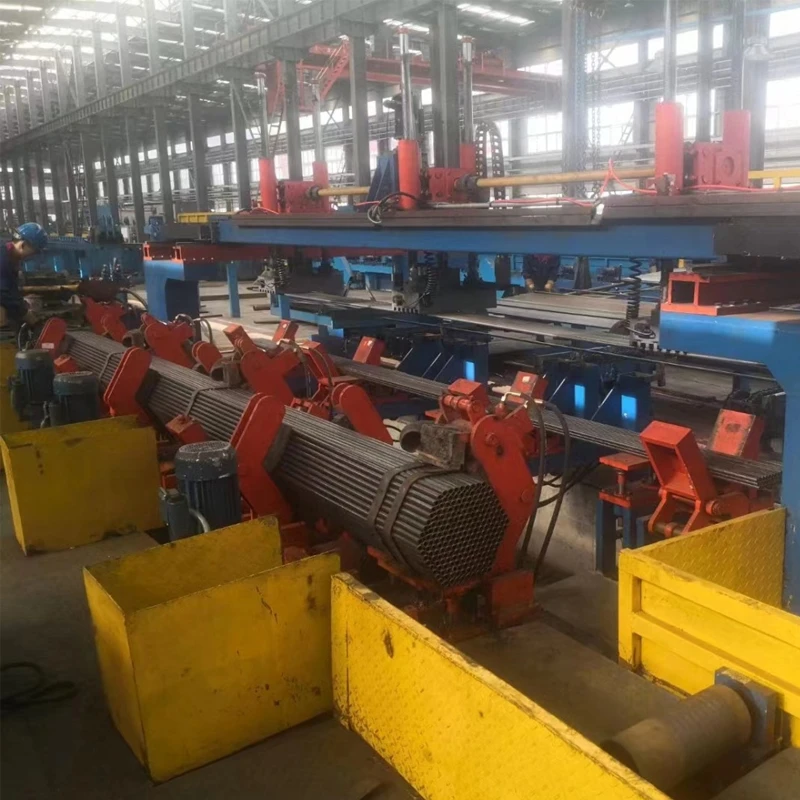aluminum profile roll forming
Aluminum Profile Roll Forming An Innovative Manufacturing Process
Aluminum has long been recognized as a versatile and lightweight material, making it a preferred choice for various applications across multiple industries, including construction, automotive, and electronics. With the growing demand for customized shapes and profiles, aluminum profile roll forming has emerged as an innovative manufacturing process, offering businesses the ability to produce high-quality, precise components efficiently.
What is Roll Forming?
Roll forming is a continuous process that involves the bending of strips of metal into desired shapes, typically with a series of consecutive rolls or dies. In aluminum profile roll forming, the raw aluminum material, usually in the form of flat sheets or coils, is fed through a series of specially designed rollers. As the material passes through these rollers, it is gradually shaped into the desired profile. The process is highly automated, which enhances productivity and ensures uniformity in the products produced.
One of the primary advantages of roll forming is its ability to create complex cross-sectional shapes with excellent consistency and precision. This makes it particularly suitable for applications where tight tolerances are required. Additionally, roll forming can produce long lengths of profiles, allowing for reduced manufacturing time and lower production costs in large-scale operations.
Benefits of Aluminum Profile Roll Forming
1. Material Efficiency The roll forming process minimizes waste, making it an environmentally friendly option. The ability to achieve specific designs without excessive cutting or machining lowers material costs and enhances sustainability.
2. Lightweight Properties Aluminum is inherently lightweight, which is a significant advantage in applications such as automotive components and structural elements in buildings. The roll-formed aluminum profiles maintain structural integrity while reducing overall weight, translating to improved energy efficiency and performance.
3. Cost-Effectiveness Once the initial tooling is established, the cost per unit produced is significantly lower compared to other manufacturing methods. This, combined with rapid production speeds, allows manufacturers to meet market demands efficiently.
aluminum profile roll forming

4. Versatility Roll forming can accommodate a wide variety of aluminum alloys, enabling designers to choose the optimal material for their specific applications. From thin-walled sections to robust structures, the flexibility of aluminum profiles supports numerous design requirements.
5. Customization The ability to create custom profiles tailored to client specifications is a significant advantage of roll forming. This adaptability allows businesses to differentiate their products and address unique market needs.
Applications of Aluminum Profiles
Aluminum profile roll forming finds applications in various sectors. In the construction industry, it is used to create window frames, door frames, and roofing elements. The automotive sector utilizes roll-formed aluminum for components such as chassis, brackets, and body panels. Furthermore, the electronics industry benefits from custom profiles for heat sinks, enclosures, and other electronic housing needs.
Challenges and Future Directions
While aluminum profile roll forming presents numerous advantages, several challenges exist. For example, the initial investment for tooling can be significant. Additionally, achieving the desired quality and consistency often requires meticulous attention during the setup phase. However, advances in technology, such as computer simulations and automated quality control systems, are helping to mitigate these challenges.
Looking ahead, the future of aluminum profile roll forming appears promising. The ongoing trend toward lightweight materials in various industries drives innovation and investment in efficient manufacturing technologies. As industries increasingly seek sustainable practices, aluminum's recyclability coupled with efficient roll forming processes positions it as a favored choice for manufacturers aiming to reduce their environmental footprint.
Conclusion
Aluminum profile roll forming stands out as a modern and efficient manufacturing process, enabling the production of durable, lightweight, and customized components. With a growing emphasis on sustainability and performance across industries, roll forming will undoubtedly play a critical role in shaping the future of manufacturing. By harnessing the advantages of aluminum and embracing innovative processes, businesses can position themselves to meet the evolving demands of the market.
-
High Frequency Straight Seam Welded Pipe Production Line-BzZhou Xinghua Machinery Equipment Manufacturing Co., LTD.|line pipe steel&welded gas pipeNewsJul.30,2025
-
High Frequency Straight Seam Welded Pipe Production Line-BzZhou Xinghua Machinery Equipment Manufacturing Co., LTD.|High Precision&Automated SolutionsNewsJul.30,2025
-
High Frequency Straight Seam Welded Pipe Production Line - BzZhou Xinghua Machinery Equipment Manufacturing Co., Ltd.NewsJul.30,2025
-
High Frequency Straight Seam Welded Pipe Production Line-BzZhou Xinghua Machinery Equipment Manufacturing Co., LTD.|Precision Welding, High EfficiencyNewsJul.30,2025
-
High Frequency Straight Seam Welded Pipe Production Line|BzZhou Xinghua|Precision Welding&EfficiencyNewsJul.30,2025
-
High Frequency Straight Seam Welded Pipe Production Line - BzZhou Xinghua|Precision Engineering&EfficiencyNewsJul.30,2025


